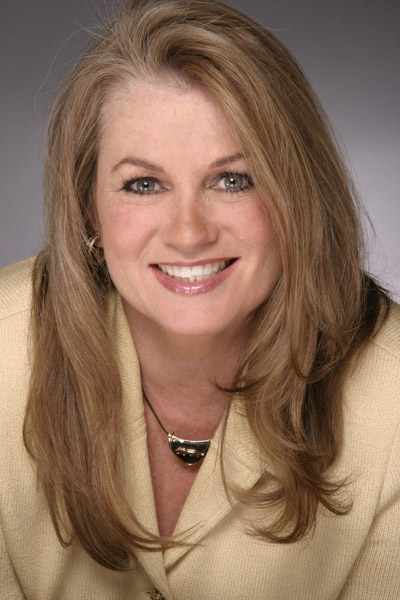Drama in the Boardroom
Families grow geometrically…
As family businesses pass from generation to generation, what started as a nuclear family with perhaps two or three children can expand dramatically. As each generation has children, the family grows geometrically. If mom and dad have two kids and each of their children have two children, we now have eight family members and that does not include in-laws. If it continues, we could then have another generation born and it is possible to have an additional eight family members.
What started out as a business which handsomely supported the original patriarch and matriarch and their progeny must now support a very large number of family members. This can be a tough order for any business.
Not every family member will opt to actively participate in the business so we may also have members who have voting authority but no active role. If the bylaws have not stated that in-laws are not allowed to have ownership roles, we may have even more members to support.
Another issue is that family members may very likely have different numbers of children. How do you address one grandson having four children while another has one or none? Are you willing to accept stepchildren into the business? How about adopted children? Add in the complexity of a divorce situation if in-laws are in the business and you’ve got some serious drama to deal with in the company which takes away from the day-to-day focus.
Family Dynamics…
More often than not, we see family members who do not get along. This can range from the cordial day to day relationship but no real friendship or close relationship outside of business to out and out hatred for one another. We regularly see siblings not speaking to one another and in the very worst-case litigating against one another.
Sometimes parents prefer to turn a blind eye to the fact that their children do not get along. Or perhaps they feel leaving a “peacekeeper” in the mix might solve the issue. This could be a trustee, legal counsel or a trusted employee. There are many drawbacks to this approach. While splitting up assets between various family members during a patriarch/matriarch’s lifetime complicates matters from both a tax perspective as well as operating, the risk of future litigation can make this a worthwhile move.
Without a great deal of forethought and governance set in place there can be a wide latitude for fighting in the boardroom. Governance should cover everything from repurchase of equity with valuation metrics in place to prenuptial agreements required for family members, voting restrictions for family members coming into age of majority as well as a myriad list of other issues which could arise.
When family members do not get along, it can cause long-term employees to feel they have two (or more) masters and have to play the middle. It can be very draining to play this game and you will not receive the best efforts from this employee who feels they must play politics to keep their job. Board meetings can be tense and if something is not working, the amount of time to recruit votes can be exhausting and a waste of energy that should be going into the building of the business.
Good outside counsel…
Any family should utilize the use of an outside business advisor with experience and expertise in addressing family business situations. While the family is busy working on their own entity, the business advisor has likely seen and heard more situations than anyone could dream up.
Planning forward for 5o or 100 years is actually what some families are doing but may not realize it. Providing for flexibility while safeguarding the family asset is a key goal for most family patriarchs and matriarchs. However, their expertise is in running their own enterprise and it may be hard to conjure up the various ways things can go awry. Therefore, utilizing someone who has seen it before can be so helpful in putting measures in place which allow the business to thrive and not be dragged down by boardroom drama.
About Chapin Hill Advisors, Inc.
 Kathy Boyle founded Chapin Hill Advisors in 2000 after spending her early career working in large and small investment firms on Wall Street. Chapin Hill Advisors works with privately-held businesses, often family-owned, to help them execute financial, estate and succession planning. We work with the business owner to be sure their business will provide their family with the financial security needed , identify areas of risk and help create strategies to mitigate risk.
Kathy Boyle founded Chapin Hill Advisors in 2000 after spending her early career working in large and small investment firms on Wall Street. Chapin Hill Advisors works with privately-held businesses, often family-owned, to help them execute financial, estate and succession planning. We work with the business owner to be sure their business will provide their family with the financial security needed , identify areas of risk and help create strategies to mitigate risk.
Businesses often need assistance creating strategies to allow the business to succeed the owner as well as address structure, systems and procedures. As a business grows, the owner needs to have a plan in place to allow succession, whether an outright sale or a transition to family, partners or employees.
We work with businesses of all sizes to assist them in creating strategies to increase revenue and profitability and tie the future growth to the owner’s or families’ personal financial goals. With larger businesses, we offer a resource directory of trusted professionals. Small businesses or solo-entrepreneurs can benefit from Chapin Hill’s combination business and personal planning strategies.
As a fellow entrepreneur, Kathy speaks from experience. She has tested many strategies in the trenches and seen her clients make mistakes as well as successes. Kathy helps entrepreneurs implement strategies for future success and helps to coach them to execute action steps.
She has advised business clients of all types and sizes on structuring sales of their businesses as well. Without a long term plan and a team who can replace the founder’s talents, a business is less likely to be purchased. Kathy’s background on Wall Street and in financial planning allows Chapin Hill to implement strong financial controls and combine both estate planning as well as business planning for future success.
For more information or a complimentary meeting, feel free to contact Kathy Boyle at: kboyle@chapinhill.com or 212-583-1992.





Leave A Comment